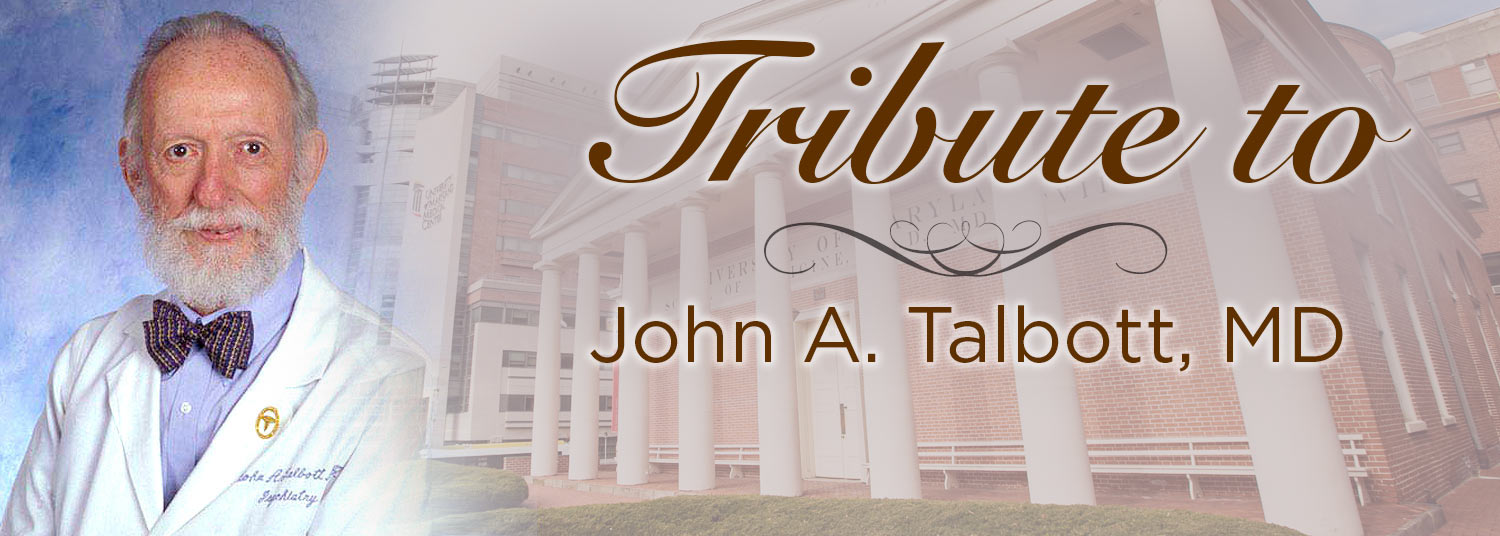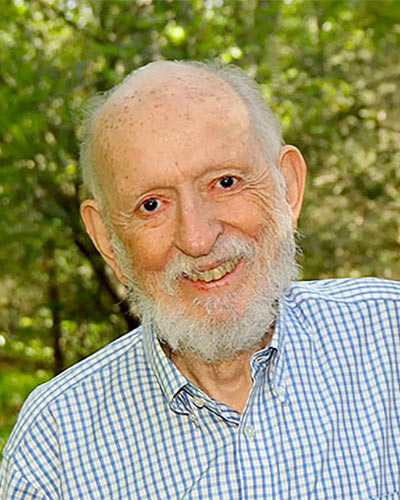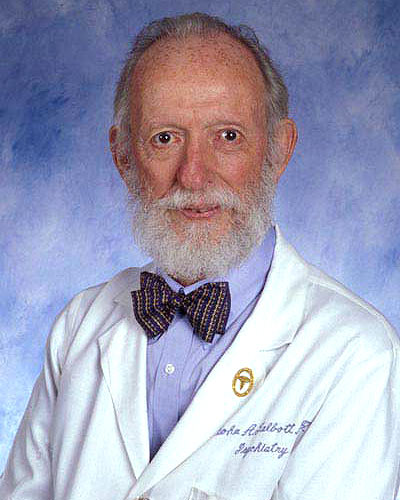June 10, 2024 | Jill RachBeisel, MD & David Mallot, MD
 Psychiatry suffered a major loss on November 29, 2023, when John A. Talbott, MD passed away at the age of 88. A pioneer in the field of Community Psychiatry, he relentlessly advocated for some of the most disadvantaged people in our collective communities–individuals with severe and persistent mental illness–a population that remains stigmatized and forgotten. His career was both defined and fueled by his rage against the neglect and indifference to these sickest members of our society. His advocacy included obtaining the necessary resources and access to care, as well as the need for empathy and understanding for the "person" trapped in the throes of severe mental illness.
Psychiatry suffered a major loss on November 29, 2023, when John A. Talbott, MD passed away at the age of 88. A pioneer in the field of Community Psychiatry, he relentlessly advocated for some of the most disadvantaged people in our collective communities–individuals with severe and persistent mental illness–a population that remains stigmatized and forgotten. His career was both defined and fueled by his rage against the neglect and indifference to these sickest members of our society. His advocacy included obtaining the necessary resources and access to care, as well as the need for empathy and understanding for the "person" trapped in the throes of severe mental illness.
An otherwise reserved and contemplative man, Dr. Talbott influenced the world of psychiatry and mental health through his words, both spoken and written. While he could easily command a room of listeners with a style conjuring up an Old Testament wrath, he didn't demand attention, and was a powerful advocate through his writing about the plight of the severely mentally ill and editing of important journals devoted to community psychiatry–including the biologic, psychologic, and social factors of mental illness.
 He was an undergraduate English major at Harvard, where one of his favorite activities was the Harvard Lampoon. This combination of seriousness of purpose and an ability to laugh at the absurdity of the world would be part of him for the rest of his life. He received his MD at Columbia, followed by a residency at the New York Psychiatric Institute and Presbyterian Hospital. Following his residency, he served as an Army physician in Vietnam, a major factor in shaping his views of psychiatry and the mentally ill.
He was an undergraduate English major at Harvard, where one of his favorite activities was the Harvard Lampoon. This combination of seriousness of purpose and an ability to laugh at the absurdity of the world would be part of him for the rest of his life. He received his MD at Columbia, followed by a residency at the New York Psychiatric Institute and Presbyterian Hospital. Following his residency, he served as an Army physician in Vietnam, a major factor in shaping his views of psychiatry and the mentally ill.
In Vietnam, he encountered the ravages of war as he treated both psychiatric trauma and severe substance abuse. He was on duty during the Tet offensive as the North Vietnamese army swept through the hospital. Following his discharge, he participated in the Vietnam Vets Against the War and served as a press spokesman at the 1968 Democratic National Convention.
As he returned to academia, first in New York and then in Maryland, he blazed a trail of leadership and advocacy for the severely mentally ill. His 1978 book, "The Death of the Asylum: A Critical Study of the State Hospital," encapsulated the horrors of closing thousands of State Hospital beds and assigning the severely mentally ill to a life on the streets. In the words of his friend and colleague, Allen Frances, MD, "Dr. Talbott became the most powerful voice of the voiceless." He is correctly seen as one of the founders and champions of Community Psychiatry.
Dr. Talbott's leadership abilities were clearly recognized and sought in the number of psychiatric organizations that he led. President of the APA, Vice President of the American Board of Psychiatry and Neurology, and President of the American Association of Chairmen of Departments of Psychiatry were only a few of his leadership positions.
He was Chair of Psychiatry at the University of Maryland from 1985 to 2000. His commitment to the severely mentally ill dovetailed perfectly with the research on schizophrenia at the Maryland Psychiatric Research Center, led by Will Carpenter, MD, and a residency, led by Walter Weintraub, MD, that partnered with the State of Maryland to treat individuals with severe mental illness. His connections to seemingly everyone in the world of Psychiatry enhanced the department and allowed it to thrive. After stepping down as Chair, he was involved in the creation and maintenance of ethical standards at the University of Maryland Medical Center and within the medical student education program.
If you asked Dr Talbott what he liked most about his work, he would often mention his editorial work. He was the editor of Psychiatric Services/Hospital and Community Psychiatry–during much of his time as editor of Psychiatric [Quarterly]–and the Journal of Nervous and Mental Disorders. He was continuing to edit the latter until just a few days before his death. His CV is weighted to books and book chapters, as well as invited lectures, as these were his preferred ways of espousing his views.
Dr. Talbott also liked to eat. In his semi-retirement he spent much of his time in his beloved Paris, where he had a blog describing his gastronomic adventures. He was also a proud husband and father and was able to gather his family for one last Thanksgiving shortly before his death. Dr. Allen Frances summed up the essence of Dr. Talbott in a piece he wrote for the British Medical Journal: "John Talbott was one of the pioneers of community psychiatry, one of its most prominent and enduring advocates, and a man who never lost his optimism that societal decency would eventually triumph over societal indifference and neglect. He believed and embodied Edmund Burke's dictum: 'Nobody made a greater mistake than he who did nothing because he could do only a little'."
Who will follow in his footsteps? Who will take up the cause as our country and communities waver in their understanding and support of those with serious mental illness? There is only one answer. It is our responsibility to carry on the work that Dr. Talbott lived and died for.
Contact
Office of Public Affairs
655 West Baltimore Street
Bressler Research Building 14-002
Baltimore, Maryland 21201-1559
Contact Media Relations
(410) 706-5260
Related stories

Friday, December 08, 2023
UM School of Medicine Celebrates the Life and Legacy of Former Psychiatry Chair, John A. Talbott, MD
It is with deep sorrow that we announce the news of the passing of internationally renowned psychiatrist John A. Talbott, MD, former Chair of Psychiatry and Professor Emeritus at the University of Maryland School of Medicine (UMSOM).
